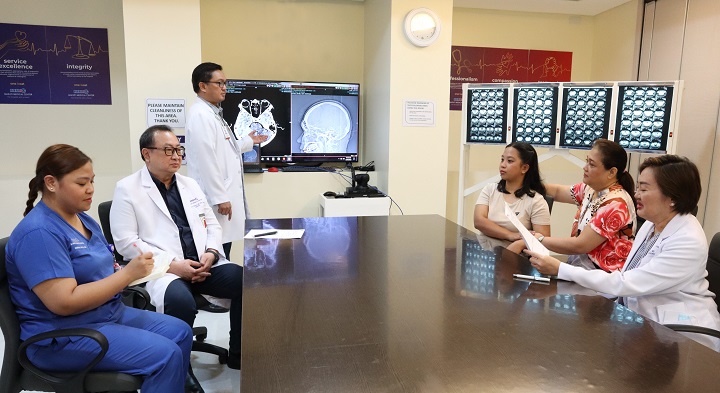
When one receives a cancer diagnosis, as over 150,000 Filipinos did in 2020, according to the international medical journal The Lancet, one can’t help but think of it as a death sentence. The third leading cause of mortality in the Philippines (diseases of the heart and vascular system are first and second, respectively), cancer takes the lives of four Filipinos every hour, or 96 cancer patients a day, says a study conducted by the University of the Philippines’ Institute of Human Genetics, National Institutes of Health.
“But the prognosis can be good too,” asserts Victor K. Gozali, MD, Executive Director of the MakatiMed Cancer Center of the top hospital in the Philippines, Makati Medical Center (MakatiMed). “Recent years have seen remarkable medical breakthroughs in the testing and treatment of cancer. With early detection, it’s now possible to overcome the disease and enjoy long, productive lives.”
Among the great strides are immunotherapy, drugs that strengthen the immune system to fight off cancer, and liquid biopsy, a non-invasive alternative to surgical biopsy, wherein a patient’s blood sample is used to detect cancer cells.
Experts’ approaches have evolved as well. There are many types of cancer—from breast, lung, and liver to the cervix, ovary, and colon- the most common in the Philippines—dealing with the complex disease is not a one-person operation. “It involves the knowledge and skills of seasoned, board-certified healthcare professionals working as a team to address the type of cancer you have and deliver the best possible treatment and outcome for you,” says Maria Belen E. Tamayo, MD, Head of the MakatiMed Cancer Center.
A patient diagnosed with breast cancer, for instance, can expect a multidisciplinary team that includes a surgeon, pathologist (who will examine the tissues and cells obtained during a biopsy or surgery), oncologist (who specializes in the treatment of cancer through drugs and radiology), chemotherapy nurse (who is trained to give chemotherapy drugs), and radiologist (who aids in diagnosis using x-rays, ultrasounds, and scans).
Later, and depending on the patient’s needs, the team may expand to include an oncoplastic surgeon (a breast cancer surgeon specializing in breast reconstruction), physiotherapist (who can facilitate rehabilitation post-surgery through physical therapy-led exercise), and psychologist (to help deal with the depression, anger, and fear experienced by cancer patients). Pain management for chronic and acute pain from specialists of different fields from anesthesia to interventional medicine, as well as palliative care, which provides supplementary support to the patient and family members to improve or maintain quality of life may also come into play to ensure holistic care for patients.
Cancer specialty center. Advocating the multidisciplinary approach to cancer treatment and disease management, MakatiMed’s Cancer Center was accredited as a cancer specialty center by the Department of Health (DOH) in November 2022. Boasting a board-certified staff and access to the latest cancer care technologies and modalities, the center has cemented partnerships with the University of California-Davis Comprehensive Cancer Center and Stanford Medical Center, which include on-site clinical rotation in various oncology subspecialties, the development of an international Cancer Care Network, a cancer registry in MakatiMed, a written opinion and 1-hour multidisciplinary consultation via video conference with UC Davis, and participation in various training programs for cancer care.
What does this mean for patients seeking treatment for their cancer diagnosis at MakatiMed? “Expect healthcare professionals from various clinical specialties to come together to discuss your particular case and condition with you,” explains Dr. Gozali, a surgeon. “We also provide a wide selection of treatment options: surgery, chemotherapy immunotherapy, radiation therapy, clinical trials, dietary analysis—even palliative care management and psychological support to cancer patients, caregivers, and family members.”
Strong support system. No one ever wants to be told they have cancer—or to experience the devastating disease alone. A robust support system from family and friends is not only key to seeing you through the challenging times of energy-zapping treatments, mixed emotions, and just trying to get on with life; they may just save your life. “Patients with a genuinely caring support system tend to have better outcomes,” Dr. Tamayo, a medical oncologist, points out.
The same goes for cancer patients treated with a multidisciplinary approach. “It’s the gold standard for diagnosing and treating cancer,” says Dr. Gozali. “When a team of medical experts from different fields works together, it provides multiple perspectives, shared expertise, and comprehensive care that can improve the patient’s chances of survival and recovery.”

